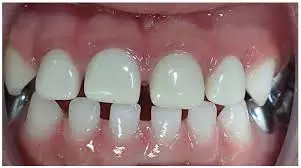- Home
- Medical news & Guidelines
- Anesthesiology
- Cardiology and CTVS
- Critical Care
- Dentistry
- Dermatology
- Diabetes and Endocrinology
- ENT
- Gastroenterology
- Medicine
- Nephrology
- Neurology
- Obstretics-Gynaecology
- Oncology
- Ophthalmology
- Orthopaedics
- Pediatrics-Neonatology
- Psychiatry
- Pulmonology
- Radiology
- Surgery
- Urology
- Laboratory Medicine
- Diet
- Nursing
- Paramedical
- Physiotherapy
- Health news
- Fact Check
- Bone Health Fact Check
- Brain Health Fact Check
- Cancer Related Fact Check
- Child Care Fact Check
- Dental and oral health fact check
- Diabetes and metabolic health fact check
- Diet and Nutrition Fact Check
- Eye and ENT Care Fact Check
- Fitness fact check
- Gut health fact check
- Heart health fact check
- Kidney health fact check
- Medical education fact check
- Men's health fact check
- Respiratory fact check
- Skin and hair care fact check
- Vaccine and Immunization fact check
- Women's health fact check
- AYUSH
- State News
- Andaman and Nicobar Islands
- Andhra Pradesh
- Arunachal Pradesh
- Assam
- Bihar
- Chandigarh
- Chattisgarh
- Dadra and Nagar Haveli
- Daman and Diu
- Delhi
- Goa
- Gujarat
- Haryana
- Himachal Pradesh
- Jammu & Kashmir
- Jharkhand
- Karnataka
- Kerala
- Ladakh
- Lakshadweep
- Madhya Pradesh
- Maharashtra
- Manipur
- Meghalaya
- Mizoram
- Nagaland
- Odisha
- Puducherry
- Punjab
- Rajasthan
- Sikkim
- Tamil Nadu
- Telangana
- Tripura
- Uttar Pradesh
- Uttrakhand
- West Bengal
- Medical Education
- Industry
Survival of pre-formed zirconia crowns in primary teeth: a prospective practice-based cohort study

Preformed zirconia crowns durable alternative to stainless steel crowns for children with early childhood caries suggests a study published in the Australian Dental Journal.
This study aimed to investigate the (1) survival probabilities of prefabricated zirconia crowns (PZCs) placed on primary teeth and (2) identify demographic and tooth-related factors that might affect survival probability. This study prospectively followed children treated under general anaesthesia by a single practitioner between 2012 and 2020. Demographic variables including the age at treatment, gender and tooth-related variables including FDI tooth number, crown size used and any procedural complications at postoperative reviews were collected. Results: A total of 155 children involving 319 teeth with PZCs were followed up between 12 and 78 months postoperatively with a mean of 38 months. Of the 319 crowns followed, five failures were observed in three patients requiring extraction. Other procedural complications noted included fracture (n = 3), overhangs (n = 3), internal resorption (n = 5) and 24% of crowns showed signs of radiographic changes on postoperative radiographs when these were taken. Age at treatment, tooth type and need for pulp therapy were not statistically associated with clinical success (P > 0.1). PZCs provide an aesthetic and durable solution in the management of children with early childhood caries. This study shows very good clinical success and survival extending up to 78 months for PZCs placed on primary teeth under general anaesthesia.
Reference:
Foster, M., Patel, J., Turlach, B. and Anthonappa, R. (2024), Survival of pre-formed zirconia crowns in primary teeth: a prospective practice-based cohort study. Aust Dent J. https://doi.org/10.1111/adj.13006
Keywords:
Preformed, zirconia crowns, durable, stainless steel crowns, children, early childhood caries, Study, Foster, M., Patel, J., Turlach, B. and Anthonappa, R, Australian Dental Journal
Dr. Shravani Dali has completed her BDS from Pravara institute of medical sciences, loni. Following which she extensively worked in the healthcare sector for 2+ years. She has been actively involved in writing blogs in field of health and wellness. Currently she is pursuing her Masters of public health-health administration from Tata institute of social sciences. She can be contacted at editorial@medicaldialogues.in.
Dr Kamal Kant Kohli-MBBS, DTCD- a chest specialist with more than 30 years of practice and a flair for writing clinical articles, Dr Kamal Kant Kohli joined Medical Dialogues as a Chief Editor of Medical News. Besides writing articles, as an editor, he proofreads and verifies all the medical content published on Medical Dialogues including those coming from journals, studies,medical conferences,guidelines etc. Email: drkohli@medicaldialogues.in. Contact no. 011-43720751


